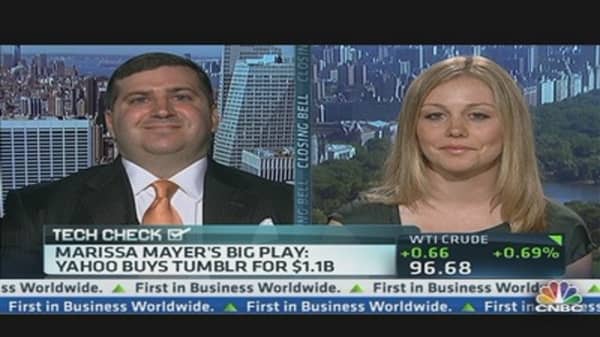Waze's recent acquisition by Google got a mixed reaction from the site's community of users. Many were happy to see the company move to the next level, while others feared that the takeover by a corporate giant would destroy the essence of what they have come to love.
Just three weeks before, Tumblr users expressed the same trepidation when Yahoo announced its plans to buy the microblogging site. Popular streaming-video site Hulu is nearing the end a long auction process that has included the exit of top executives. Fears persist that once it is sold, a new corporate owner may amend its core principles.
This ownership issue exists at the level of even large businesses—imagine Berkshire Hathaway without Warren Buffett to protect its culture—and is of particular concern with tech start-ups. The takeover of a start-up tends to raise concerns within its user community and workforce about whether its defining culture can survive the merger with a much larger entity.
The answer is often no. That's sobering for Web and social media entrepreneurs, whose visions are frequently overridden by the needs and priorities of the acquirer. Just ask Matt Rutledge.
(Read more: Hate Your Job? Office Perks Won't Help)
Rutledge founded Woot.com, the grand-daddy of the daily deal movement, and sold it to Amazon three years ago for $110 million. He announced the deal using the site's trademark humor.
"We think now is the right time to join with Amazon because, quite simply, every company that becomes a subsidiary gets two free downloads until the end of July, and we very much need that new thing with Trent Reznor's wife on our iPods," he wrote.
"We are excited about doing this for all sorts of reasons. One, our business model is so vague that there's no way Amazon can possibly change what it is we're truly doing: preparing the way for the rise of the Lava Men in 2012."
The laughter faded when Rutledge stepped away from the company last year. Though he wouldn't change his move to sell to the retailer, he says he would approach it differently if faced with the same choice today.
"During that period in Woot's lifespan, there were a lot of directions yet to be defined. and the lack of crystallization of next steps was a detriment," Rutledge said. "We couldn't define those well to the acquirer. And in absence of very defined, concrete initiatives, it's hard to continue forward. ... I [also] think we could have used a more cohesive audience that was able to elaborate in a stronger manner what [it] appreciated in the existing model."
Woot still enjoys good traffic, but the community love has diminished. At the beginning, users would eagerly stay up late, hoping to get first dibs on the next day's single item. Today, though the site offers many deals—perhaps a necessary step given the competition from Groupon and LivingSocial—the fervor is largely gone.
(Read more: Obamacare to Hurt Jobs? It's Already Happening)




